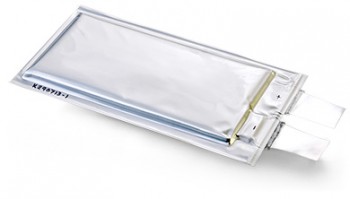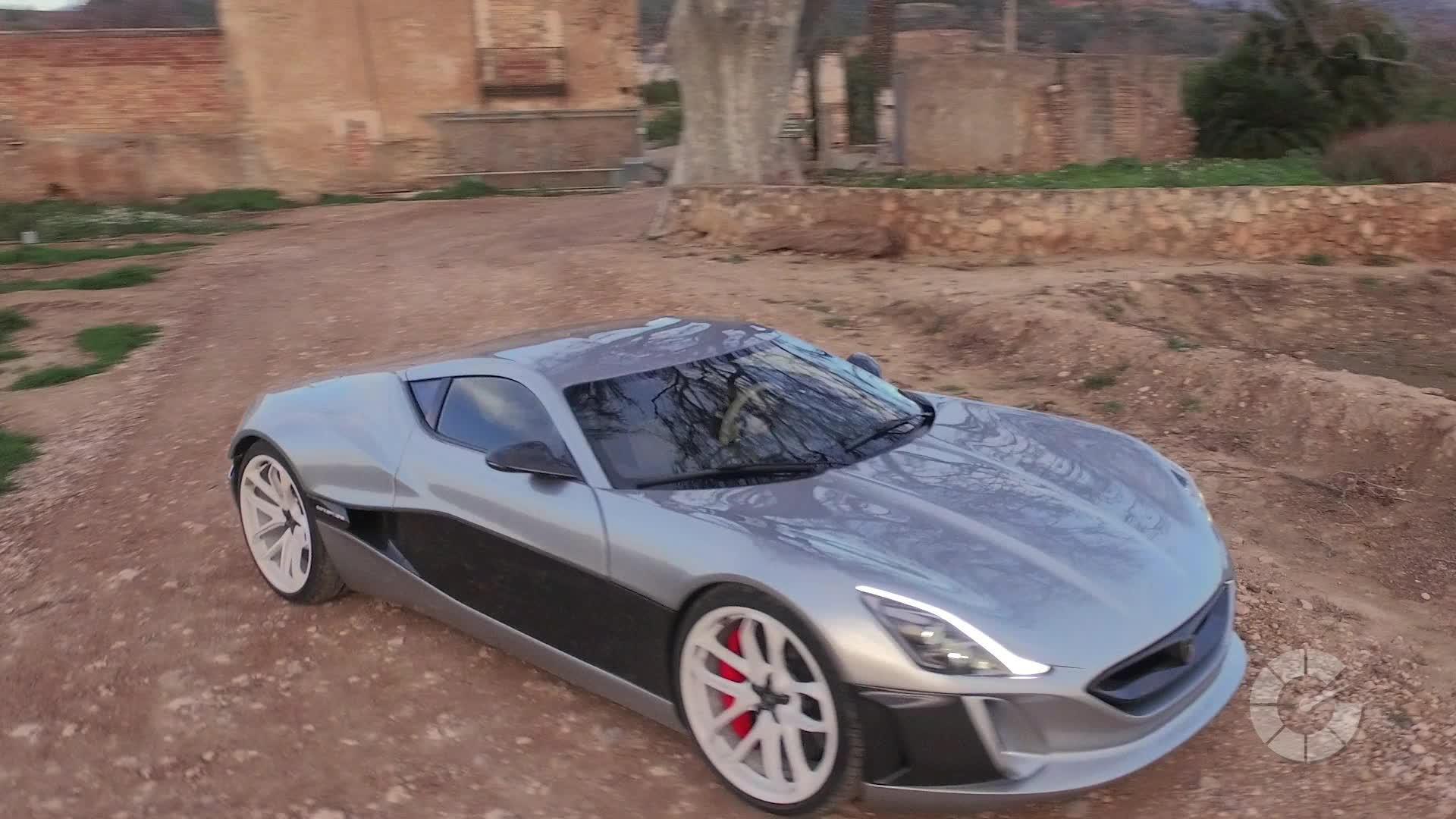DRIVING AN EV CAN PUT CASH BACK INTO AN OWNER’S WALLET IN THE LONG RUN. Despite having higher sticker prices than comparable conventionally-powered models, owning an electric vehicle can still save an owner money over time. For starters, the cost to run an electric vehicle can be considerably less than fueling a gas-powered ride. On… Continue reading Despite Higher Upfront Costs, Electric Cars Can Save Money Over Time
Tag: Electric vehicles
Elon Musk mocks SEC as ‘Shortseller Enrichment Commission’ days after settling fraud charges
Musk trolls the SEC
2 Hours Ago | 05:31
Tesla CEO Elon Musk mocked the Securities and Exchange Commission in a tweet Thursday, calling the agency the “Shortseller Enrichment Commission,” days after settling fraud charges brought against him by the agency.
The tweet, which is missing a word and appears to take a sarcastic tone, says “the Shortseller Enrichment Commission is doing incredible work” and commends the SEC on a name change that did not occur.
Musk doubled down on the remark when another Twitter user said Musk needs a “a social team that can get attention without typos and without enraging the Shortseller Enrichment Committee.”
The Tesla CEO asked, “Why would they be upset about their mission? It's what they do.”
Shares of the automaker fell more than 2 percent after hours following the tweet. The stock was already down 4.4 percent during regular hours.
Late last week, Musk reached an agreement with the SEC to settle fraud charges in connection with an Aug. 7 tweet about taking the company private. Musk claimed at the time the necessary funding had been secured — a claim the SEC alleged was “false and misleading.”
Three experts on the future of Tesla after Elon Musk settled with SEC
5:55 PM ET Mon, 1 Oct 2018 | 01:35
That settlement hit a snag earlier Thursday when a federal judge ordered the agency and the billionaire CEO to justify the agreement as “fair and reasonable.”
Musk has often been outspoken about short sellers, investors who are betting against Tesla, accusing them of spreading “negative propaganda.” Last year he called them “jerks who want us to die.”
Later on Thursday, Musk responded to someone else's tweet suggesting that short selling should be illegal by agreeing and describing short sellers as “value destroyers.”
The SEC's complaint, filed last week, suggests Musk tweeted the take-private proposal, in part, to lift the company's stock and punish short sellers. Investors betting against Tesla lost about $1.3 billion immediately following that tweet.
The proposed settlement, should it be approved, would require Tesla to “establish a new committee of independent directors and put in place additional controls and procedures to oversee Musk's communications.” That oversight would only take effect 90 days after the settlement takes effect.
Elon Musk is bringing Trump-style tweeting to the corner office
4:11 PM ET Fri, 10 Aug 2018 | 04:39
NAVYA and AXA launch a partnership to develop insurance solutions tailored to autonomous vehicles
3 October 2018 NAVYA and AXA launch a partnership to develop insurance solutions tailored to autonomous vehicles To mark the opening of the 2018 Paris Motor Show, NAVYA, a leading company in the autonomous vehicle market and in smart and shared mobility solutions, and AXA, a global leader in insurance and asset management, announce the… Continue reading NAVYA and AXA launch a partnership to develop insurance solutions tailored to autonomous vehicles
OXIS Energy UK Achieves 425 Wh/kg In New Battery Cell
OXIS Energy now targets 450 Wh/kg and 500 Wh/kg UK-based OXIS Energy announced that its lithium-sulfur (Li-S) battery cells already achieved 425Wh/kg on a High Energy 16Ah pouch cell design for HAPS applications (High Altitude Pseudo Satellites). The target by the end of this year is 450 Wh/kg and a stunning 500 Wh/kg by the end… Continue reading OXIS Energy UK Achieves 425 Wh/kg In New Battery Cell
$3.6 million Aspark Owl electric supercar preorders begin
Japan’s Aspark is taking preorders for its battery-electric Owl at the Paris Motor Show, promising deliveries starting in mid-2020 for the supercar, first revealed a year ago in Frankfurt, that promises a sprint time of less than 2 seconds. Bloomberg reports the Japanese engineering firm is taking nonrefundable deposits of 1 million euros — about… Continue reading $3.6 million Aspark Owl electric supercar preorders begin
Cadillac beats Tesla as best partially self-driving system, Consumer Reports says
Original Article
Zunum Aero bets on hybrid electric engines for its small commuter jet
The traditional aviation industry typically moves rather slowly, but over the last few years, we’ve seen a number of upstarts that are challenging the status quo both in the general and commercial aviation business. One of those is Zunum Aero, which is looking to produce a small hybrid electric-powered commuter plane for six to 12… Continue reading Zunum Aero bets on hybrid electric engines for its small commuter jet
Secretive robot-car maker Zoox opens up
As the self-driving car navigated the narrow, winding streets leading to San Francisco’s Coit Tower, Jesse Levinson narrated from the back seat like a proud parent. “Isn’t that cool, how we slowed down for that person and then nudged around him?” said the chief technology officer of self-driving startup Zoox. “See how steep this street… Continue reading Secretive robot-car maker Zoox opens up
Japan’s Toyota and SoftBank to form joint venture for new mobility services
Japanese automaker Toyota and tech giant SoftBank announced Thursday that they are forming a joint venture by April 2019 that will use data to optimize supply and demand in the transportation space.
The company, called Monet Technologies, will coordinate between Toyota's information infrastructure for connected vehicles and SoftBank's so-called Internet of Things platform that collects and analyses data from smartphones and sensors, the Japanese corporations said in a joint statement.
In the first phase, Monet plans to roll out just-in-time vehicle dispatch services for Japanese public agencies and private companies to meet user demand. Those services include on-demand transportation and corporate shuttles.
By the second half of the 2020s, the joint venture will roll out an on-demand mobility service that will use Toyota's self-driving, battery-operated electric vehicle called e-Palette for various purposes. They include meal deliveries, where the food is being prepared inside the vehicle, hospital shuttles that can conduct medical examinations on board and mobile offices.
Monet will roll out its mobility services in Japan before focusing on future expansion on the global market.
Toyota launched plans for the so-called e-Palette earlier this year and described the concept as a “fully-automated, next generation battery electric vehicle” that can be customized and scaled for various mobility services.
The companies said that the joint venture will start at 2 billion yen ($17.49 million), and will be increased to 10 billion yen in future. They did not specify a timeline.
SoftBank will own 50.25 percent of the joint venture while Toyota will take 49.75 percent. SoftBank Corp representative director and CTO, Junichi Miyakawa, will be president and CEO of the new joint venture.
That news came after Toyota's rival Honda said it was taking a stake in General Motors subsidiary Cruise Holdings as part of a plan for the two automakers to work together and build an autonomous vehicle. Honda will invest $2.75 billion over the next 12 years, which includes paying GM $750 million immediately as it takes a 5.7 percent stake in Cruise Holdings.
Both Toyota and SoftBank are separately developing technologies that are used in self-driving cars and related services.
The two companies have also invested in major ride-hailing firms: Toyota is invested in Uber and Grab while SoftBank backs both firms as well as China's Didi Chuxing.
Automakers around the world are making multibillion-dollar investments and creating long-range plans for rolling out autonomous vehicles. Many of them are teaming up with other companies to share risks, technologies and expensesassociated with building self-driving cars since it will take time before those vehicles can be mass-produced and sold for a profit.
Many analysts think the widespread adoption of self-driving cars will start to pick up in 2021 or 2022.
— CNBC's Phil LeBeau contributed to this report.
SoftBank and Toyota team up to develop services powered by self-driving vehicles
SoftBank is getting into self-driving car services after the Japanese tech giant announced a joint-venture with Toyota in its native Japan. SoftBank is invested in Uber and a range of other ride-hailing startups like Didi in China and Grab in Southeast Asia, but this initiative with Toyota is not related to those deals. Instead, it… Continue reading SoftBank and Toyota team up to develop services powered by self-driving vehicles



